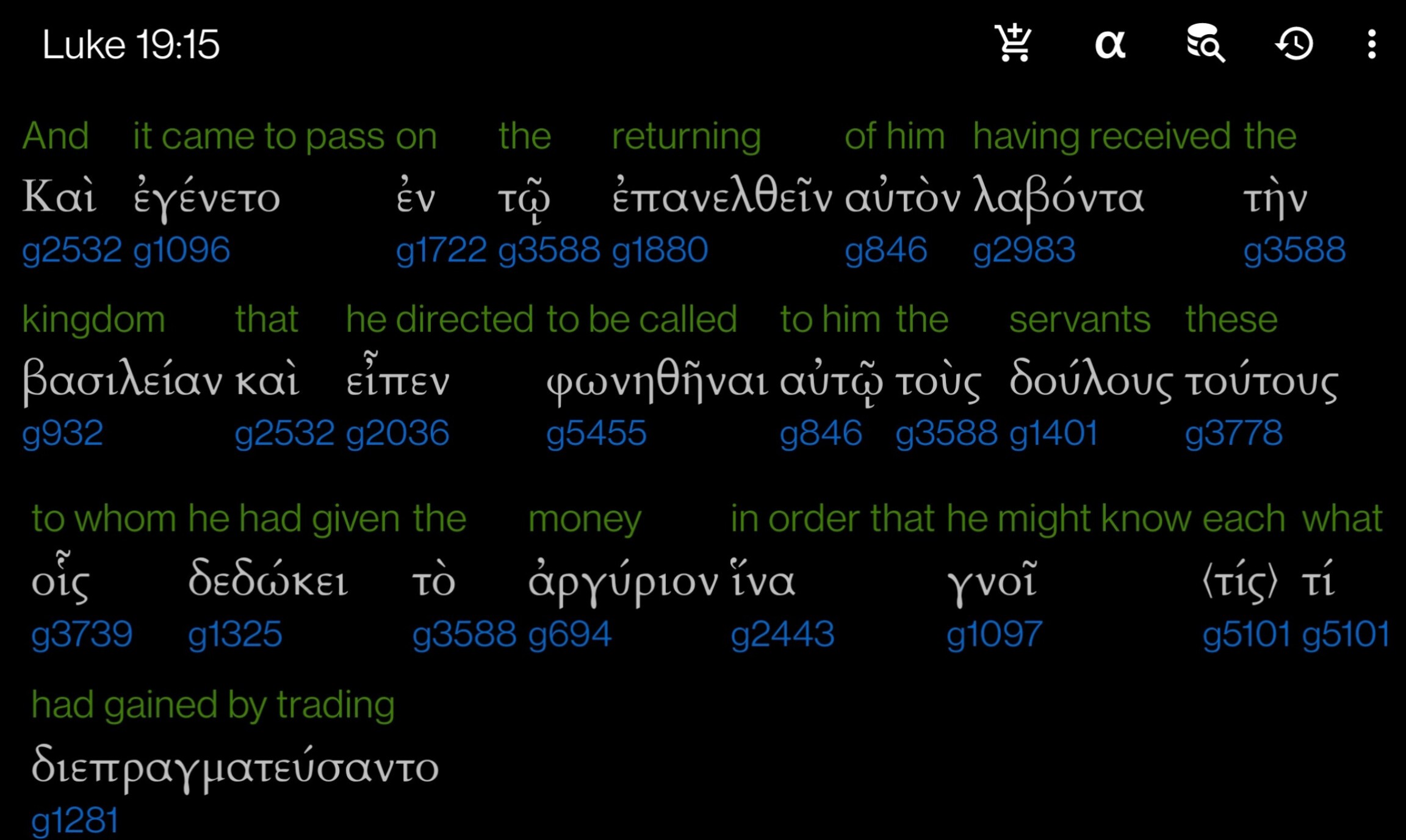In Kenneth E. Bailey's book "Jesus through Middle Eastern Eyes" he challenges common renderings of the Parable of the Ten Minas in Luke 19 (also called the Parable of the Pounds):
"As Westerners one of our lenses [we perceive texts through] is Capitalism. Does the Parable of the Pounds need to be liberated from the presuppositions of capitalism that perhaps have unconsciously influenced our translations and interpretations of this story?" (p397)
He makes the case that 'pragmateusanto' (g4231) in v13 and its variant in v15 refer to 'doing business', not profit. Essentially, the nobleman does not instruct them to make profit, but rather to do business, and then asks how much business they did:

The last word in verse 15 (g1281) is commonly translated as some kind of profit or gain oriented request by the nobleman:

Bailey goes on to make the case that the Parable is about Faithfulness rather than Profit, that the challenge for the hearers was more about representing Jesus faithfully in a place which is hostile towards him, and that the unfaithful servant was unfaithful because he hid his allegiance to his master, not because he made no profit.
What is the most faithful rendering of the nobleman's words in v13 and v15? Does Bailey's reading hold water linguistically, or are the more popular 'gain' oriented translations of this text more faithful?